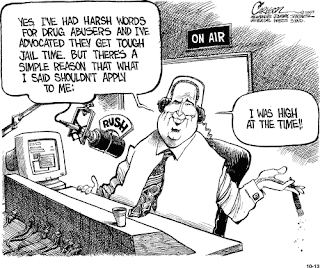NFL players are at a pivotal moment. They are faced with the decision of whether to approve the proposed collective bargaining agreement (CBA). For months, NFL ownership and the NFL Players Association (NFLPA) have worked to create an equitable CBA. On February 26, 2020, the NFLPA Board of Player Representatives voted to send the proposed CBA to the players for a full membership vote. Whether this proposed agreement is truly equitable is a matter of opinion. Many are of the opinion that it is not. Critics argue that the owners are essentially getting everything they want while the players are not getting enough in return. Given everything NFL ownership is getting compared to what the players are getting, the deal is not the most equitable. Accordingly, the players should take a stand and demand more.
Summary of the Owners and Players Benefits in the Proposed CBA
The 17th Game
First, NFL ownership would get a major victory by simply getting the players to agree to a deal at this juncture. The current CBA does not expire until March 3, 2021. From the players’ standpoint, there is not much reason to rush. The players are not yet facing a lockout. The 2020-2021 NFL season can be played under the current CBA. Therefore, any threat of a lockout would be a whole season away. Second, if the players agree to this deal the owners will have the thing they wanted most – a 17th regular-season game. The owners have wanted this for a long time as they know it will lead to an increase in revenue.
Listen to the Podcast with Former NFLPA President
In fact, NFL ownership is set to enter negotiations with broadcasters and streaming services after the start of the NFL league year on March 18, 2020. NFL ownership would love to enter those negotiations with a new CBA in hand without the threat of a future lockout. It is precisely this fact that gives the players a bit of leverage in these negotiations. The players have something the NFL refuses to move forward without – the 17th game. The players should use that to their advantage. They should also use the fact that NFL ownership needs to enter broadcast negotiations without the threat of a future lockout looming. These two things alone could be enough for the players to increase the revenue split to 50/50.
The Revenue Split
Under the proposed CBA the revenue split will only increase to 48%. The revenue split has the potential to increase to 48.5% if there is a 60% increase in TV revenue. Therefore, the ability to receive a 48.5% revenue split is not guaranteed. Furthermore, the players will have no opportunity to receive a 50/50 revenue split for at least 10 years. As written, the proposed CBA will be in effect for 10 years with no opt-out provision. A ten-year deal with no opt-out provision should be a major concern to the players.
Even with Salary Increases, the NFL Players are Not Getting Enough in Return
It is true that many players will receive a significant increase in their salaries as early as 2020. Many players’ salaries could increase by roughly $100,000 next season if the CBA is agreed to. However, those increases are not enough to make up for the inequities of the deal. Many players have recognized this and have taken a stand against the proposed CBA. Several high profile players announced their intent to vote against the proposed CBA urging other players to vote no. One of those players is Green Bay Packers’ star quarterback Aaron Rodgers.
Another one is Seattle Seahawks superstar Russel Wilson.
Wilson stated that “The NBA and MLB are doing it right. Players come first.” This was a very interesting take on the issue and is even more reason for the players to take a stand. The NBA and MLB are considered by many to be more progressive leagues than the NFL. The NBA and MLB are viewed that way because they are more player-centric. If NFL players want the NFL to become more player-centric, they have to be willing to stand up for themselves. NFL players should not agree to a deal where the franchise tag remains intact while the penalty for training camp holdouts becomes more severe. NFL Players should take their time and make the most out of their negotiation power.













